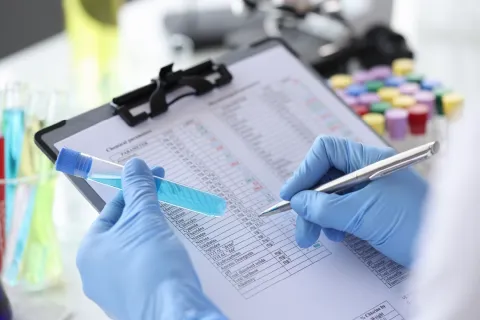
In the face of escalating environmental concerns and Regulatory expectations, the pharmaceutical industry is being called upon to uphold safety, efficacy, and compliance and demonstrate responsibility toward sustainability. While sustainability efforts have traditionally focused on packaging, energy, and emissions, an emerging frontier is the integration of zero-waste initiatives and circular economy principles within pharmaceutical quality systems.
This blog explores how zero-waste and circular practices can be strategically woven into pharma quality frameworks, enhancing operational efficiency, ensuring compliance, and supporting the global transition toward greener healthcare systems.
What is a Zero-Waste Pharmaceutical Quality System?
The concept of zero waste goes beyond simple recycling. It involves redesigning systems and workflows to prevent waste from being generated in the first place. In pharmaceutical quality systems, this shift calls for a profound reevaluation of how quality-related activities—from documentation and audits to deviation handling and supplier oversight—can be optimized to eliminate inefficiencies and material loss.
Key Elements of Zero-Waste in Pharma Quality:
- Digital Quality Documentation: Transitioning to electronic systems to reduce paper dependency and eliminate manual redundancies.
- Lean Audit Processes: Implementing digital and remote audit methodologies that reduce travel-related emissions and unnecessary documentation.
- Root Cause-Oriented CAPA: Ensuring deviations and non-conformities are resolved with a preventive mindset to eliminate recurring waste and process errors.
- Sustainable Procurement and Supplier Qualification: Evaluating suppliers for compliance, environmental performance, and material efficiency.
- Waste-Sensitive SOPs and Work Instructions: Embedding sustainability checkpoints into standard operating procedures to flag and avoid process-driven waste.
By integrating these elements, pharmaceutical organizations can significantly reduce the traditional quality operations' material and energy footprint. In doing so, they comply with current standards and build resilience in future operations by reducing waste, cost, and operational risk.
Circular Economy Principles and Their Application in Quality Systems
The circular economy model is based on three (3) primary principles: designing out waste and pollution, keeping products and materials in use, and regenerating natural systems. Translating these into a pharmaceutical context, especially within quality systems, requires rethinking lifecycle management, resource utilization, and process efficiency.
Circular Practices Across Quality Functions:
- Reusability of Quality Data: Instead of re-generating quality data for each Regulatory market or product variant, intelligent document management systems can repurpose validated information while maintaining integrity.
- Lifecycle Documentation Strategy: Viewing documentation not as static files but as evolving, reusable assets that support global Regulatory needs across multiple submissions.
- Return-to-Manufacture Programs: Quality oversight of drug returns and reworkable batches can be redesigned to reincorporate them into production cycles where regulations allow safely.
- Closed-Loop Training Systems: Regular feedback-driven updates to training programs based on deviations and audit observations ensure resource optimization and skill retention.
By shifting from linear, throwaway practices to circular approaches, pharma companies can significantly extend the usability and value of every quality process while aligning with environmental goals.
Sustainability-Driven Compliance: Emerging Regulatory Trends
Regulatory bodies worldwide are now beginning to recognize the environmental impact of pharmaceutical operations. Agencies like the EMA, FDA, and WHO include sustainability frameworks in their long-term policy outlooks. The European Green Deal, for instance, promotes eco-friendly manufacturing and transparent sustainability practices, including pharmaceutical operations.
From a compliance standpoint, regulators may increasingly scrutinize:
- Environmental impact of manufacturing and disposal processes
- Traceability of sustainable practices within the supply chain
- Lifecycle environmental performance of pharmaceutical products
Moreover, sustainability is beginning to be seen as a business imperative, not just as the best practice. Regulators are moving toward frameworks that require evidence of sustainability within quality management systems. These expectations are setting new benchmarks for inspections, requiring companies to provide tangible proof of environmentally responsible actions as part of their core compliance documentation.
Operationalizing Zero-Waste and Circularity: Practical Steps
For quality leaders and Regulatory professionals looking to embed these principles into their systems, the following strategic actions are recommended:
- Conduct a Sustainability Assessment of current quality processes to identify sources of waste and inefficiency.
- Transition to a Digital Quality Management System (QMS) that supports real-time collaboration, traceability, and remote audit capabilities.
- Incorporate Environmental KPIs into supplier qualification and contract manufacturing assessments.
- Integrate Circular Economy Goals into quality objectives and annual management review meetings.
- Train Quality Teams on Sustainable Practices, emphasizing the intersection between compliance and environmental performance.
- Standardize Audit Protocols that evaluate GMP compliance and sustainability practices, ensuring comprehensive oversight.
- Continuously Monitor and Optimize—Use internal audits and inspections to measure compliance and assess the effectiveness of zero-waste and circular initiatives.
Companies that proactively operate sustainability within their quality systems position themselves ahead of Regulatory and competitive curves. The journey to zero waste is possible but increasingly necessary for long-term success.
Conclusion: Toward a Sustainable Quality Future
Pharmaceutical quality systems are no longer just a compliance necessity but a vehicle for achieving broader operational and environmental goals. By adopting zero-waste initiatives and circular economy principles, pharmaceutical companies can reduce inefficiencies, boost Regulatory alignment, and contribute meaningfully to environmental sustainability.
Partner with Freyr to Build Sustainable, Compliant Quality Systems
At Freyr, we help pharmaceutical and life sciences companies implement next-generation GxP quality systems that are compliant, robust, and aligned with sustainability and operational excellence principles. Explore how our end-to-end quality and Regulatory services can help your organization transition from traditional systems to future-ready, eco-conscious quality frameworks.









